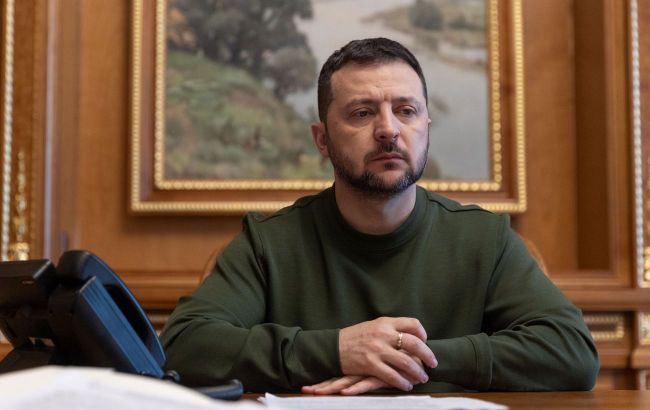Zelenskyy on Iran–Israel flare-up: 'This factor definitely doesn't help us'
 Photo: President of Ukraine Volodymyr Zelenskyy (Getty Images)
Photo: President of Ukraine Volodymyr Zelenskyy (Getty Images)
President Volodymyr Zelenskyy stated during a briefing that the new wave of conflict between Iran and Israel creates additional risks for Ukraine, particularly in the energy and security dimensions.
The head of state emphasized that the consequences of Israeli strikes on Iran are already being felt: oil prices are rising, which benefits Russia. If no cap is imposed on the export price, Russia will gain additional windfall profits that could be directed toward its war against Ukraine.
"This factor certainly does not help us. Therefore, because of this, our voice will be stronger in talks with the American side regarding the introduction of price caps and the application of sanctions against Russia’s energy sector," Zelenskyy said.
The president also announced new contacts with the United States, including with Donald Trump, to discuss oil restrictions and the continuation of support for Ukraine.
In Zelenskyy’s view, it will also be important to assess the impact of Israel’s strikes on Iran’s military industry. If factories producing Shahed drones and missiles were indeed hit, this could directly affect Iran’s ability to supply weapons to Russia.
"Let’s hope that the relevant production or transfers to the Russians will decrease. This helps Ukraine," the head of state noted.
Zelenskyy also mentioned the potential decrease in Western aid to Ukraine amid the escalation in the Middle East.
"No one is challenging the relationship between America and Israel, but we would like to ensure that support for Ukraine is not reduced because of it. Last time, this was a factor that delayed aid to Ukraine. And that’s a fact. Because for us, to be honest, a reduction or a delay is the same thing. I believe these are the three main factors," the president emphasized.
Conflict between Israel and Iran
As a reminder, yesterday, June 13, the Israeli military launched missile strikes on Iran. Numerous military facilities were hit.
The targets included Iran’s nuclear sites, specifically uranium enrichment facilities in Natanz and Fordow.
This came amid the failure of the US and Iran to reach an agreement on a new nuclear deal.
In response, Iran launched an attack on Israel. Air raid sirens sounded, and Iran fired at least 150 missiles, some of which were intercepted.
However, direct hits were recorded in several cities. Fires broke out in Tel Aviv and Ramat Gan, and some residents were trapped under rubble.

